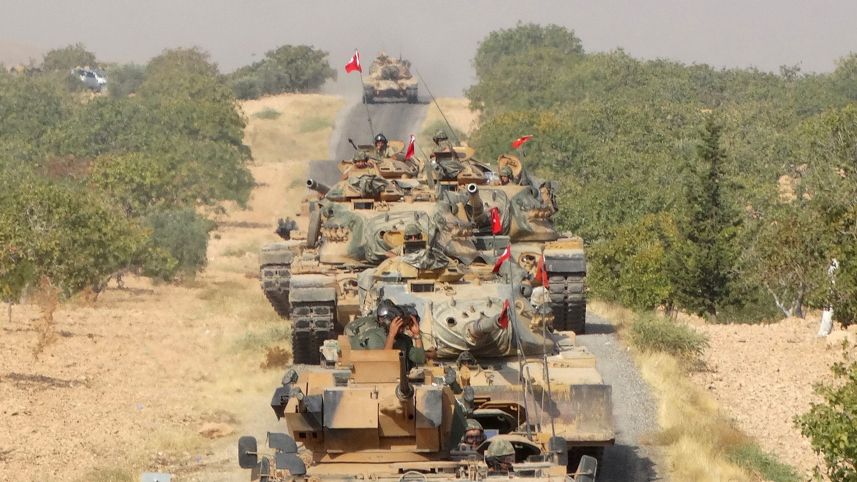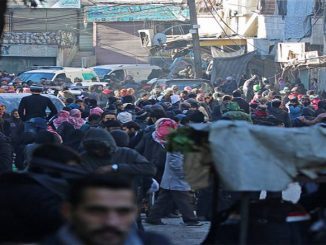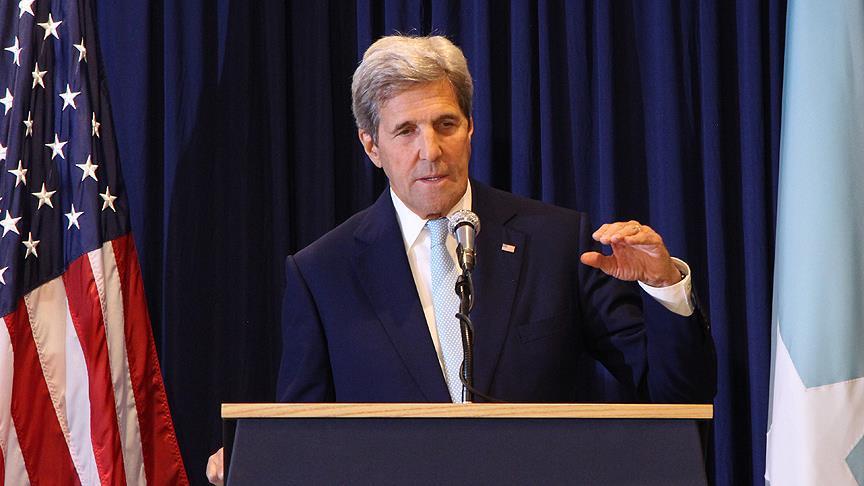
The Turkish military operations in Syria against both ISIS and the Kurdish militias have made great success in cleaning the border area of militant presence. However, this advance didn’t suit Assad regime which threatened Turkey and entered a new phase of targeting Turkish forces directly.
Turkey’s military operation in Syria named Euphrates shield was launched on 24. August to drive Islamic State militants from its border and prevent Kurdish fighters from gaining ground and strengthen their positions, and has changed te balance of power in northern Syria and added more tension to the already complicated area.
Syrian rebels were able to retrieve Jarablus town from ISIS and opened a new front to the west at al-Rai village, putting more pressure on ISIS militants from the both sides and securing the Syrian-Turkish border from the militants’ presence.
Syrian rebels retrieve Dabiq town also from ISIS, paving the way to attack al-Bab city near Aleppo.
The rebels have since extended those gains and now control an area of roughly 1,270 square km (490 square miles) in northern Syria.
With their advancement to al-bab, the Syrian rebels and Turkish forces became near to Aleppo city were the regime is besieging more than 275.000 civilians in the rebel-held areas.
This approach angered Assad regime, which saw it as an attempt to enter Aleppo city. The regime threatened the Turkish forces and Assad regime calling their operation as a breach of its sovereignty.
The field commander of the forces allied to the Syrian leader – which include the Lebanese group Hezbollah, Iraqi militias and the Iranian Revolutionary Guards – warned Turkey any advance towards their positions north and east of Aleppo would be met “decisively and with force”
Turkish president said previously that Turkish forces have no interest in entering Aleppo.
“Let’s make a joint fight against terrorist organizations. But Aleppo belongs to the people of Aleppo … making calculations over Aleppo would not be right,” he said in a speech in Ankara.
However, this didn’t prevent Assad regime forces from attacking the rebels’ forces near Dabiq in October.
The Turkish military said the threat was real and a helicopter “assessed to belong to regime forces” bombed the rebels it backs in a village near Akhtarin, a town 5 km (3 miles) southeast of Dabiq on October 25. Dabiq is a former Islamic State stronghold that the rebels seized from the jihadists this month.
It was the first time a direct clash between Syrian forces and the Turkey-backed rebels has been announced. Two rebels were killed and five wounded, the Turkish army said.
“This kind of attack will not stop our fight against Daesh (Islamic State),” Turkish Foreign Minister Mevlut Cavusoglu told a news conference in the capital Ankara.
“This operation will continue until al-Bab. The operation needs to continue, and it will,” he said.
Direct targeting
The threat entered a new phase as Assad regime forces attacked directly Turkish forces.
The attack occurred at around 3:30 am on Thursday during a Turkish-backed Syrian rebel operation in northern Syria, the Turkish military said in a statement.
It said 10 other soldiers were wounded in the air strike that it “assessed to have been carried out by Syrian regime forces”.
“In the air strike assessed to have been by Syrian regime forces, three of our heroic soldiers were killed and 10 soldiers wounded, one seriously,” the statement added.
It gave no details on the exact location, but Turkish news media said the location was near the northern Syrian city of Al-Bab.
Turkey said it would retaliate after this incident, and that these actions won’t prevent its forces from going on with their operations.
“It is clear that some people are not happy with this battle Turkey has been fighting against Daesh (Islamic State). This attack will surely have a retaliation,” Prime Minister Binali Yildirim told reporters in the capital Ankara.
“Our general staff’s military contact with related officials is still continuing. The warning has been given to the officials, certainly and clearly, not to repeat the attack,” Yıldırım said.
Direct confrontation between NATO-member Turkey and Syrian government forces, which are backed by allies including Russia, would mark a serious escalation in the battlefield in northern Syria.
How will the Turkish operation go after that? Will Turkey revenge its soldiers’ death? And will there be more armed confrontations between both the forces?
These things are still speculations, waiting to be replied on the ground of a battlefield that gives no one a clear view of the coming days, other than more blood, rage and violence.



